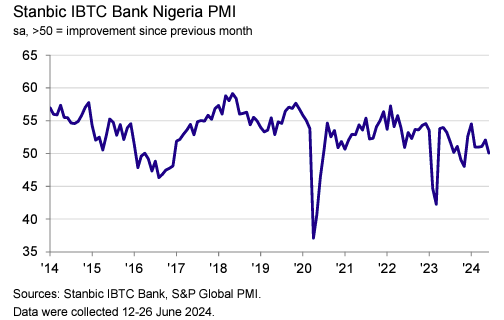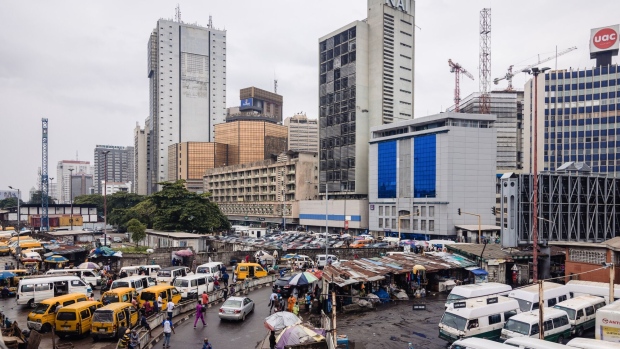Nigeria’s private sector experienced stagnation as subdued demand and intense price pressures led to slowdowns in the growth of output and new orders.
June data from the Stanbic IBTC Bank Nigeria Purchasing Managers’ Index revealed the PMI dropped to 50.1, the lowest in seven months, down from 52.1 in May.
This drop indicated only a marginal improvement in business conditions, resulting in a fractional rise in employment.
Inflationary pressures strengthened, with purchase prices, staff costs, and selling charges all increasing more rapidly than in the previous month. The sharp rise in output prices was driven by higher input costs, exacerbated by currency weakness and increased raw material costs, particularly in animal feed.
These challenges limited firms’ ability to benefit from any improvement in underlying demand, leading to a near-stagnation in new orders.
Business confidence remained among the lowest on record, with firms hesitant about the outlook. However, some optimism was linked to plans for business expansion, securing new funding, and efforts to boost exports. Despite these challenges, the agriculture and manufacturing sectors saw faster increases in business activity compared to services and wholesale & retail.

Attribution: S&P global PMI data.


